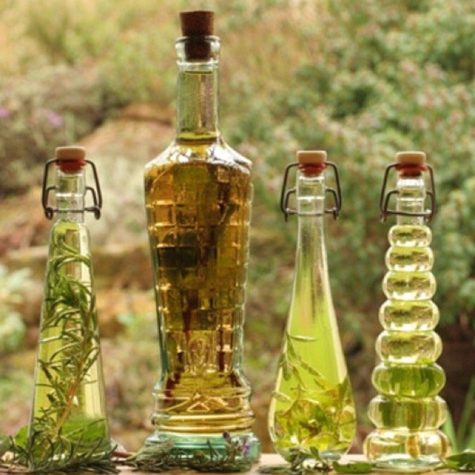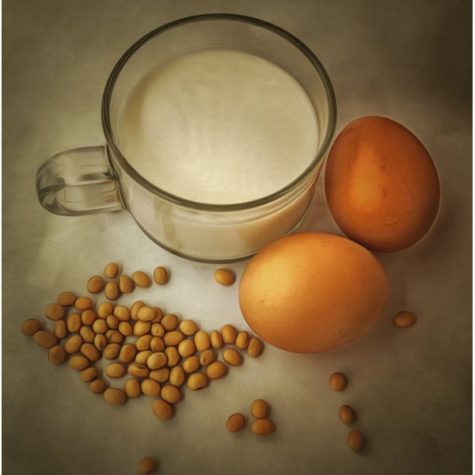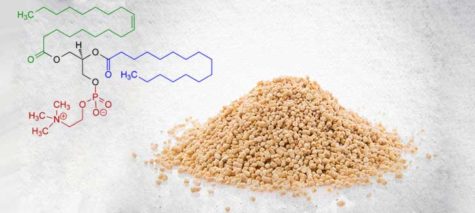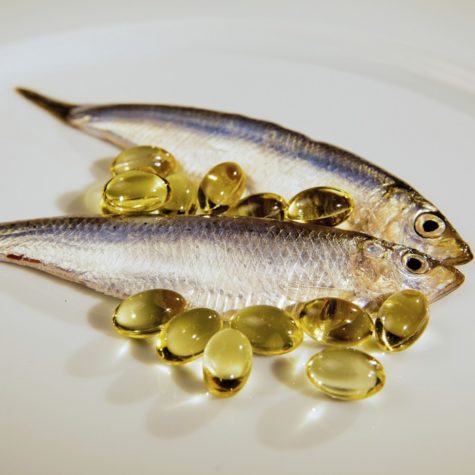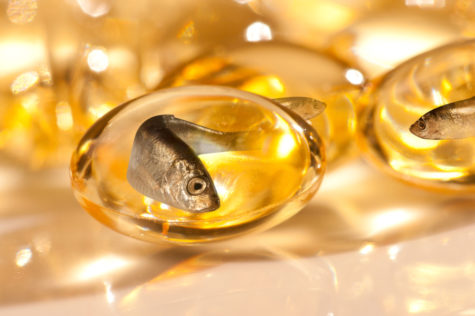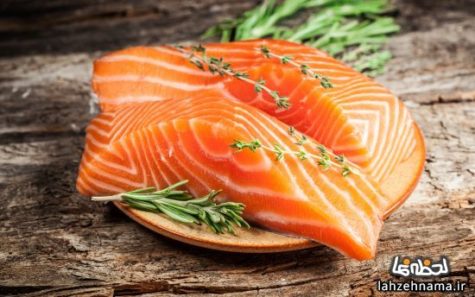Oil
How to Make Herbal Oils
Oils infused with herbs are a great way to utilize the healing properties of plants which contain volatile oils and fats.
Plants containing volatile oils are generally those commonly used in aromatherapy but they can be used as a salad oil too. Aromatic plants such as lavender, rosemary, thyme, sage, peppermint, chamomile, rose, yarrow, juniper and pine all make great oils.
You can use a variety of different oils as the base for the infusion. Olive oil is classic for the leafy herbs, sunflower, sweet almond, jojoba, or apricot oil all make a great base for creams and salves.
How to Infuse
You can use dried or fresh plant material, although fresh is generally best (except calendula-dry). If using fresh herbs, pick them on a dry day after the sun has dried the morning dew.
Make sure you pick clean plant matter; this is particularly important as you are not going to wash the plants. It must be as dry as possible to prevent spoilage, if there is any dirt brush it off with a soft-bristle brush or simply shake.
If using leaves such as comfrey or plantain, it’s good to let them wilt overnight to reduce some of the water content but flowers are best used fresh.
Chop fresh leafy herbs finely and lightly fill a sterilized, dry jar with the material. It’s important to cut the herb first as it exposes more of the plant to the oil, making for a better infusion. Flowers can be put in whole and dried herbs will most likely come already cut.
Fill the jar almost to the brim with oil because an air gap will promote oxidation and spoilage. Stir the contents with a wooden chopstick until all air bubbles have dispersed then place lid on.
You can leave it to infuse on a sunny windowsill or in indirect light.
Stir every day for the first two weeks then leave to infuse for another two to four, that’s four to six weeks in total. Calendula and some other oils are nice to double infuse- leave for 3 weeks, strain, then fill the jar with fresh flowers and pour the partially infused oil back on top and repeat the process.
Don’t forget to label your jars so you remember when to strain them. Strain through a sieve covered in cheesecloth or a jelly bag. If you used fresh material it is wise to let it stand for a week and check if any water has settled in the bottom of the jar. If so pour off the oil and discard the water.
Bottle the infused oil and be sure to label it including the best before date of the oil from the original bottle.
From: Edible Wild Food
Lecithin – An Amazing Youth Element
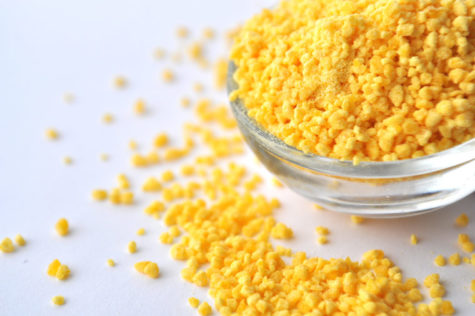
Lecithin is the most abundant of the phospholipids. It is a fatty food substance, which serves as a structural material for every cell in the body. It is an essential constituent of the human brain and nervous system. It forms 30 per cent of the dry weight of the brain and 17 per cent of the nervous system.
Lecithin is also an important component of the endocrine glands and the muscles of the heart and kidneys. It makes up 73 per cent of the total liver fat. Nervous, mental or glandular over activity can consume lecithin faster than its replacement. This may render a person irritable and exhausted. It is, therefore, of utmost importance to add lecithin to the diet, if the body’s own supply decreases as in old age or working under stress.
Rich Sources
Lecithin is derived from the Greek Word, likithos, meaning egg yolk. Egg yolk is a rich source of lecithin, and also a rich source of cholesterol. This combination makes it possible for the lecithin to emulsify the cholesterol. Vegetable oils, whole grain cereals, soy beans, liver and milk are other rich sources of lecithin.
The cells of the body are also capable of synthesizing it as needed, if several of the B vitamins are present. Since these B vitamins are generally removed when grains are refined, people who eat exclusively white flour products are lacking them.
Benefits
The action of lecithin on the heart is the most important of all its proved benefits. It achieved its popularity initially in this area. Cholesterol is a fatty substance that tends to collect in the walls of the arteries and veins, thus narrowing them. This may eventually lead to a fatal blood clot. Scientific studies have shown that lecithin has the ability to break up cholesterol into small particles which can be easily handled by the system. With sufficient intake of lecithin, cholesterol cannot build up against the walls of the arteries and veins.
Like cholesterol, lecithin is continuously produced in the liver, passes into the intestine with bile and is absorbed in the blood. It helps in the transportation of fats. It also helps the cells to remove fats and cholesterol from the blood and to utilize them. It increases the production of bile acids made from cholesterol, thereby reducing the amount in the blood. It will thus be seen that cholesterol can cause trouble only if lecithin is lacking in the system.
All atherosclerosis or changes in the arterial walls are characterized by an increased of the blood cholesterol and a decrease in lecithin. It has been shown that experimental heart disease, produced by feeding cholesterol, could be prevented merely by giving a small quantity of lecithin. Atherosclerosis has been produced in various species of animals by increasing the blood cholesterol or decreasing the lecithin.
In normal health, when a diet high in fat is taken, there is tremendous increase in the production of lecithin. This helps in changing the fat in the blood from large particles to smaller and smaller ones. In case of atherosclerosis, however, the lecithin in the blood remains very low regardless of the quantity of fat entering the blood. The result is that, the fat particles remain too large to be able to pass through the arterial walls.
A more serious situation can develop if there is lack of lecithin in cells also. Besides reducing the cholesterol level in the blood, there is mounting scientific evidence to suggest several other benefits from lecithin. It has been suggested that its intake in sufficient amounts can help rebuild those cells and organs which need it. Lecithin helps to maintain their health once they are repaired. It may mean that a deficiency of lecithin in the diet may be one of the causes of ageing and that its use may be beneficial in retarding the ageing process.
Edward R. Hewith in his book, The Years Between 75 and 90 says:
” with older people the fats remain high in the blood for from five to seven hours and in some cases as long as 20 hours, thus giving the fats more time to become located in the tissues. If lecithin is given to older people before a fatty meal, it has been found that the fats in the blood return to normal in a short time, in the same way they do in younger people.”
In some cases, the cosmetic effect of lecithin does as much for the mental outlook of persons as it does for their physical well-being. It has been found to eliminate the yellow or yellow- brown plaques on the skin or around the eyes caused by fatty deposits. It is a natural tranquilizer which is beneficial in nervous exhaustion. It can produce great alertness in elderly people.
Some studies have indicated that lecithin increases the gamma globulin in the blood. This helps fight infection. It provides an increased immunity against pneumonia. It has also been found to lower blood pressure in some people. In combination with vitamin E, it has proved helpful in lowering the requirements of insulin in diabetics. It has also proved valuable in the treatment of certain skin ailments, including acne, eczema and psoriasis.
Lecithin has been suggested as a sexual aid. It was used in Germany 30 years ago as a restorative of sexual powers, for glandular exhaustion and nervous and mental disorders. Seminal fluid is rich in lecithin. Because of its loss from the body, its need for men is regarded as specially great. Its use is also considered valuable in minimizing pre-menstrual and menopausal tension.
Dr. N.A. Ferri, an eminent physician remarks:
“Lecithin has a versatile function in life. It is an extremely important factor in the digestion and oxidation of fats, thus creating more muscle and glandular activity, resulting in greater body exertion and less fat accumulations.
Lecithin is essential not only for tissue integrity of the nervous and glandular system in all living cells, but has been regarded as also the most effective generator and regenerator of great physical, mental and glandular activity.
Shattered nerves, depleted brain power, waning activity of vital glands, find in lecithin, especially in the cellular structure of the nervous system and endocrine glands a source of dynamic energy.”
The best way to increase lecithin is to eat the same amount of fat as usual, but reduce animal fat except that from fish. Oil may be used for cooking, seasoning and salad dressing. All hydrogenated fats such as margarine, cooking fats, hydrogenated peanut butter and processed cheese should be avoided as also foods prepared with them.
Where To Get The Most Omega-3s
You usually find the most omega-3 fat in the fattiest fish from the coldest deep sea. Richest sources are:
- Mackerel
- Anchovies
- Herring
- Salmon
- Sardines
- Lake trout
- Atlantic sturgeon
- Tuna
Moderate amounts are found in the following:
- Turbot
- Bluefish
- Striped bass
- Shark
- Rainbow smelt
- Swordfish
- Rainbow trout
Shellfish – crab, lobster, shrimp, mussels, oysters, clams and squid – contain lesser amounts of omega-3s.
To get the most omega-3 benefits, bake or poach fish. Frying or otherwise adding fat, especially vegetable oils high in omega-6s, decreases the omega-3 potency in the fish.
Choose tuna packed in water and sardines canned without oil, unless it is a sardine oil, noted on the label as sild Added oils, such as soybean oil, can diminish the omega-3s. Also, draining oil from the canned tuna washes away from 15 to 25 percent of the omega-3s, whereas draining water off washes away only 3 percent.
You can also get some omega-3s in certain plant foods. The highest concentrations are in walnuts, flaxseed and rapeseed (from which canola oil is made) and purslane, a green leafy vegetable that grows wild in the United States and is commonly eaten in Europe and the Middle East. However, plant omega-3s appear to be only one-fifth as potent as marine omega-3s in fostering beneficial reactions in cells.
From: Food Your Miracle Medicine
Fish Oil For Prevention
The following is a list of various disorders that fish oil may alleviate or prevent:
- Rheumatoid arthritis: Reduces joint pain, soreness, stiffness, fatigue.
- Heart attacks: Cuts the odds of subsequent heart attacks by one-third.
- Clogged arteries: Keeps arteries open and clear. Eaters of fatty fish have less atherosclerosis. Reduces risk of reclosure of arteries after angioplasty surgery by 40 to 50 percent.
- High blood pressure: Eliminates or reduces the need for pharmaceutical pressure-lowering medications.
- Ulcerative colitis (inflammatory bowel disease): In one test, eating 4.5 grams of fish oil a day – equal to that in seven ounces of mackerel – for eight months depressed disease activity by 56 percent.
- Psoriasis: Reduces itching, redness, pain in some patients, and cuts the amount of medication needed.
- Multiple sclerosis: Helps reduce symptoms in some patients.
- Asthma: Curtails attacks in some individuals.
- Migraine headaches: Lessens severity and frequency in some sufferers.
From: Food Your Miracle Medicine
The Lifesaving Power of Fish
“Our epidemic of heart disease and cancer may be the result of a human fish oil deficiency state so enormous we fail to recognize it.”
~Ewan Cameron, MD
New research underscores the enormous lifesaving power of fat in fish. Eating fatty fish can directly intervene to save people from death and disability from heart attacks. Studies have found that atherosclerosis – diseased and clogged arteries – worsens, the less marine oil a person eats.
Dr. William E. M. Lands,a pioneering researcher on fish oils, has developed a formula that he says can precisely predict an individual’s odds of heart attack; a simple finger-prick test measures a person’s blood ratio of omega-3 and omega-6 fatty acids. The higher the proportion of marine omega-3s to omega-6s, the lower the risk of heart attack. Similarly, studies reveal that a high ratio of omega-3 fatty acids to omega-6 fatty acids in the blood cuts your chances of cancer.
Although it’s largely unappreciated, our over-consumption of omega-6 oils, prevalent in margarine, salad oil, cooking oil and processed food, is helping create a health disaster. It is true, heart authorities first encouraged the widespread use of such vegetable oils to lower blood cholesterol, not suspecting the oils could have detrimental effects on other aspects of health, such as fostering inflammatory diseases, lowering immunity and promoting cancer. Such omega-6 oils are well-documented villains in augmenting cancer incidence, cancer spread and deaths in laboratory animals.
The only way to correct this abnormal and alarming fat imbalance in cells is to cut back drastically on foods rich in omega-6s and increase the intake of marine omega-3s, say experts. The impact is almost immediate. Within 72 hours, you can see a beneficial biochemical impact in tissue by eating three and a half ounces of fish a day, studies indicate.
It is smart to eat fish, especially fatty fish such as salmon, sardines, mackerel, herring and tuna, at least two or three times a week. However, adding any amount of seafood to a seafood-poor diet can readjust our fatty acid balance somewhat, helping curtail not only heart disease, but the many modern disorders linked to a “seafood fat deficiency.”
Research shows that eating just an ounce of fish a day may help restore our cells to healthy functioning, saving countless people from disability and premature death inflicted by the unimagined consequences of fat’s pharmacological powers.
From: Food Your Miracle Medicine
You Are The Fat You Eat
Very quickly after you eat fat, it shows up in the membranes of your cells where its metabolic fate is determined. Although fatty acids come in many subtle variations of molecular arrangement, two major categories are most important in making elcosanoids, (a family of powerful, hormone-like compounds produced in the body from Essential Fatty Acids).
These two major categories are omega-3 fatty acids, concentrated in marine life as well as a few land plants, and omega-6 fatty acids, concentrated in land-based vegetable oils such as corn oil, safflower and sunflower oil, as well as in animal foods raised on land-based feeds.
When you consume land-based omega-6 fatty acids from a piece of meat or corn oil, they are apt to be changed into a substance called arachidonic acid, which in turn spawns substances that are highly inflammatory or promote blood stickiness and blood vessel constriction. Fat from seafood is radically different and more benign. Its omega 3 fatty acids are apt to be converted into substances that counteract blood platelet clumping, dilate blood vessels and reduce inflammation and cell damage.
Since food is made of mixtures of omega-3s and omega-6s, obviously these two fatty acids are continuously giving contradictory instructions to cells. Which prevails – those for health or those for disease – depends on the ratio of the two fatty acids in your diet and hence your cells, says William E. M. Lands, PhD., a pioneering researcher on fish oils and formerly a professor of biochemistry at the University of Illinois at Chicago.
If your cells are flooded with omega-6 fatty acids, the resulting oversupply of overactive prostaglandins is apt to run amok, generating disease. If you have sufficient omega-3 fatty acids, they can check or cool down the archidonic engine that is spewing out the disease-producing eicosanoids.
From: Food Your Miracle Medicine
